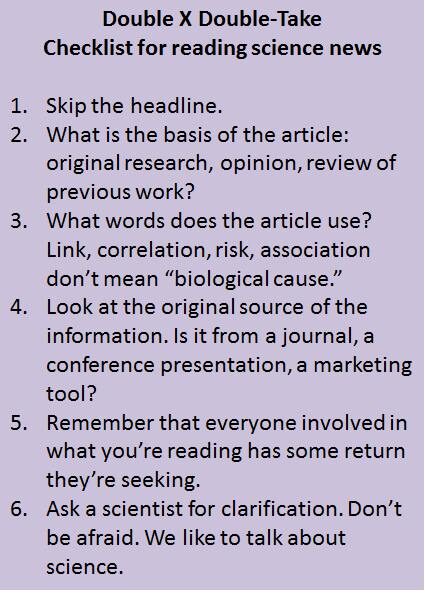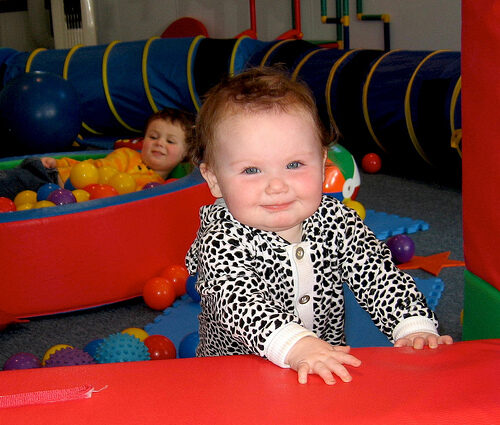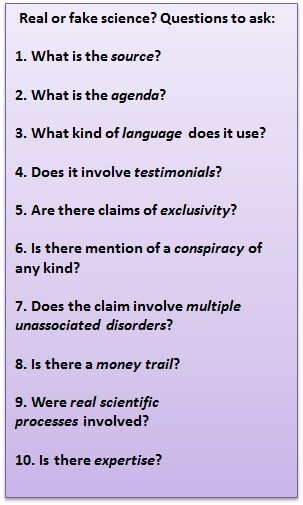Emily Willingham doublexscience.blogspot.com Natural News recently resurrected an OLD study about “monkeys with autism” that, when it came out two years ago (for the second time), was so egregious that many autism/science bloggers tore it to pieces. That hasn’t stopped Natural News from presenting it as “new.” So, we are running science editor Emily Willingham’s original reaction to the study, below. We also encourage you to read editor Liz Ditz’s overview of the entire history of this “study.” I was sitting across from a friend today at a picnic table when she received an email on her smart phone. A local parent who disseminates all manner of autism-related information and misinformation had circulated an email with a SafeMinds headline asserting that “scientific evidence” had emerged linking autism, vaccines, and mercury. Suppressing the impulse to hurl all over the beach towels at the prospect of yet another mole to whack (or,…
Tag: science
Emily Willingham doublexscience.blogspot.com www.ThinkingAutismGuide.com Handy short-form version. [image: Light purple vertical rectangle, with black text reading: Double X Double-Take Checklist for reading science news 1. Skip the headline. 2. What is the basis of the article: original research, opinion, review of previous work? 3. What words does the article use? Link, correlation, risk, association don’t mean “biological cause” 4. Look at the original source of the information. Is it from a journal, a conference presentation, a marketing tool? 5. Remember that everyone involved in what you’re reading has some return on what they’re seeking. 6. Ask a scientist for clarification. Don’t be afraid. We like to talk about science.] You’ve probably seen a lot of headlines lately about autism and various behaviors, ways of being, or “toxins” that, the headlines tell you, are “linked” to it. Maybe you’re considering having a child and are mentally tallying up the various risk factors…
Dr. Sally Ozonoff is the Principal Investigator of the Infant Sibling Study Team at the UC Davis MIND Institute. We talked with Dr. Ozonoff about her autism research work, how the Infant Sibling Study operates, and what the study does and does not mean. This interview took place before yesterday’s CDC announcement about autism prevalence rates, but Dr. Ozonoff’s team had some similar findings within their own study, especially regarding earlier/more intense scrutiny leading to earlier and increased rates of autism diagnoses. How did you become involved with the Infant Sibling study? Is it in line with your previous areas of research? I have always been interested in diagnostic issues within the autism spectrum. I began my work in the autism field researching individuals with Asperger syndrome, trying to understand if and how they differed from individuals with autism. This was back in the early 1990s, when Asperger syndrome had…
Emily Willingham biologyfiles.fieldofscience.com Pseudoscience is the shaky foundation of practices — often medically related — that lack a basis in evidence. It’s “fake” science dressed up, sometimes quite carefully, to look like the real thing. If you’re alive, you’ve encountered it, whether it was the guy at the mall trying to sell you Power Balance bracelets, the shampoo commercial promising you that “amino acids” will make your hair shiny, or the peddlers of “natural remedies” or fad diet plans, who in a classic expansion of a basic tenet of advertising, make you think you have a problem so they can sell you something to solve it. Pseudosciences are usually pretty easily identified by their emphasis on confirmation over refutation, on physically impossible claims, and on terms charged with emotion or false “sciencey-ness,” which is kind of like “truthiness” minus Stephen Colbert. Sometimes, what peddlers of pseudoscience say may have a…
San Diego’s Fox 5 covered the IMFAR press conference, including an interview with Shannon Des Roches Rosa:


